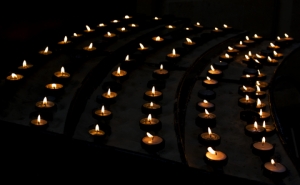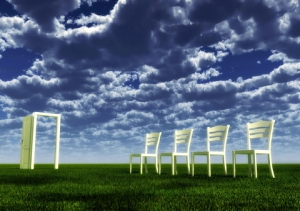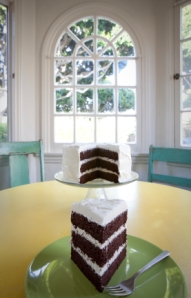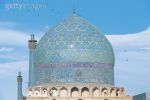The Top 5 and a Half Movies with a Message
In some ways we are often engaged in the process of practicing religion, even if that’s not what we’re calling it, or its not about our formal theology (God talk). The most basic notion being that we are all human and from that perspective, we are bound together by our collective experience of being human.
Movies have a particular advantage in this regard. They connect us, fill our senses with the sights, sounds, and emotions of other’s stories. When done well, they move us… (to tears, laughter, reflection, or inspiration).
Here are Nun Tuck’s pick of the top 5 and a half movies with a message:
 51/2. Stand by Me (1986) A coming of age movie based on a novella The Body by Stephen King. It received Golden Globe Awards for Best Picture and Best Director as well as an Academy Award for Best Screenplay. The only reason this is number five and a half is that six sounded less exciting and this movie (one of my all time favorites) while meaningful may not have the overarching power of the other four.
51/2. Stand by Me (1986) A coming of age movie based on a novella The Body by Stephen King. It received Golden Globe Awards for Best Picture and Best Director as well as an Academy Award for Best Screenplay. The only reason this is number five and a half is that six sounded less exciting and this movie (one of my all time favorites) while meaningful may not have the overarching power of the other four.
Stephen King also wrote the next 2 picks. We often associate King with scary, deranged, but page turner novels. Yet there is also something prolific in his ability to capture the darkness and suffering of the human soul but also it’s resilient potential with an occasional glimpse of cosmic justice.
5. The Green Mile (1999) A story of the baseness and wonder of human behavior set in a death row prison in the 1930’s. See how the supernatural abilities and character of John Coffey bear a resemblance to another J.C. Based on Stephen King’s novel The Green Mile, it was nominated for best picture, best supporting actor, and best screenplay.
4. The Shawshank Redemption (1994) Another prison setting, this movie is based on Stephen’s King’s Rita Hayworth and The Shawshank Redemption. “The narrator (Morgan Freeman) is healed from his despair by Tim Robbin’s character’s hope in the face of suffering. There is the redemption that comes when one man is redeemed by the suffering of an innocent man who takes on the suffering of prison, seeing life within and beyond it, and living fully.” (Edie Bird) (Again the Biblical reference of Jesus (the innocent) taking on the sins of others. The metaphors of endless, the prison itself being one of them. This movie was nominated for Best Picture, Best Actor, Best Supporting Actor, and Best Director, but it was running against one of my other picks that year.
Now, my daughter says that my top 3 picks are a little cliche, but a lot of things sound like a cliche, but that doesn’t make them any less real…or wonderful.
3. Chariots of Fire (1981) British Film- true life story of 2 athletes in the the 1924 Olympics in Paris, Eric Liddell, a devout Scottish Christian who runs for the glory of God and Harold Abrahams, an English Jew running to overcome prejudice. The faith and courage of both men is inspirational and the title comes from the Bible, 2Kings 2:11- “Bring me the chariot of fire“. It won the Academy Award for Best Picture.
2. Forrest Gump (1994) Forrest is a simple minded man whose innocence and trust are made all the more poignant as he travels through the turbulent culture in which he lives and the effects he has on the broken lives whom he touches. This film won Academy Awards for Best Picture, Best Actor, Best Supporting Actor, Best Screenplay, Best Writing, among others. It won these same accolades at the Golden Globes (including Best Supporting Actess). Bible reference: Luke 18:15-17, “Truly, I say to you, whoever does not receive the Kingdom of God like a child shall not enter it.”
 1. Gandhi (1982)- An outstanding and gripping biography of Mahatma Gandhi, the lawyer who became the face of the Indian people’s non-violent protest (which inspired Martin Luther King.) This movie won the Academy Award for Best Picture, Best Director, and Best Actor, among others. Gandhi wrote several books on Jesus Christ, one of which was entitled The Message of Jesus Christ. The Hindu leader said, “The message of Jesus as I understand it is contained in the sermon on the Mount unadulterated and taken as a whole…If then I had to face only the Sermon on the Mount and my own interpretation of it , I should not hestitate to say, ‘Oh yes, I am a Christian’. But negatively I can tell you in my humble opinion, what passes as Christianity is a negation of the Sermon on the Mount…I am speaking of the Christian belief, of Christianity as it is understood in the west.
1. Gandhi (1982)- An outstanding and gripping biography of Mahatma Gandhi, the lawyer who became the face of the Indian people’s non-violent protest (which inspired Martin Luther King.) This movie won the Academy Award for Best Picture, Best Director, and Best Actor, among others. Gandhi wrote several books on Jesus Christ, one of which was entitled The Message of Jesus Christ. The Hindu leader said, “The message of Jesus as I understand it is contained in the sermon on the Mount unadulterated and taken as a whole…If then I had to face only the Sermon on the Mount and my own interpretation of it , I should not hestitate to say, ‘Oh yes, I am a Christian’. But negatively I can tell you in my humble opinion, what passes as Christianity is a negation of the Sermon on the Mount…I am speaking of the Christian belief, of Christianity as it is understood in the west.
Let me know your thoughts….do you have a nomination?











